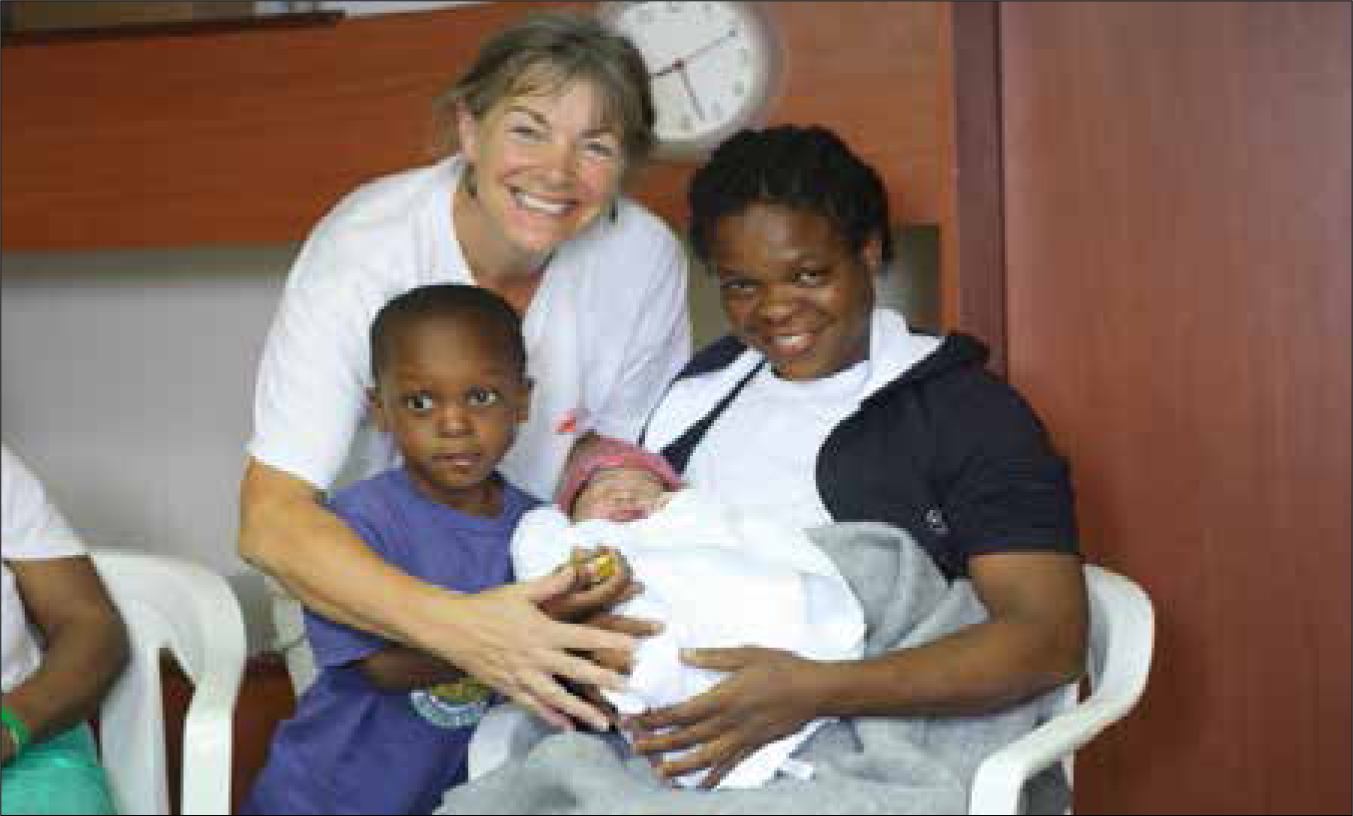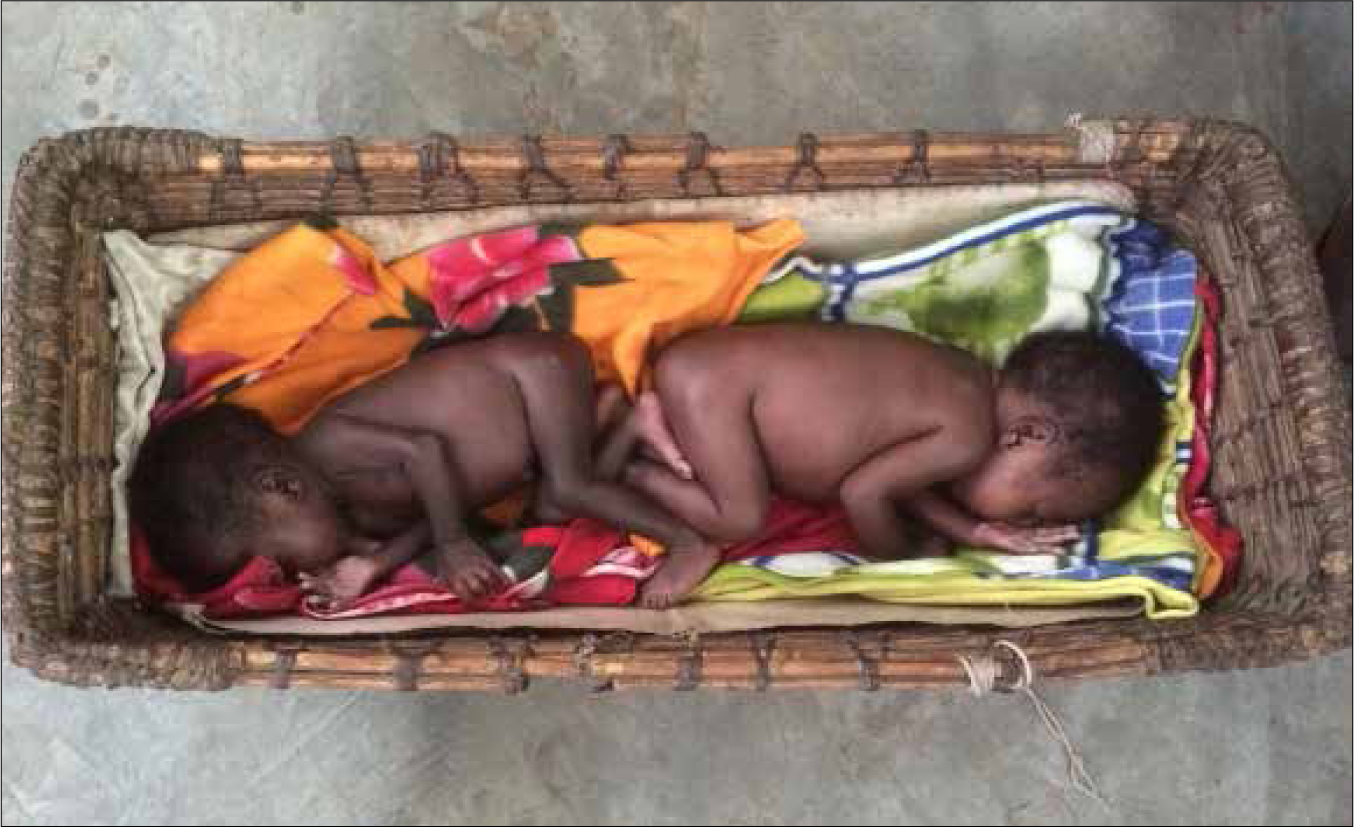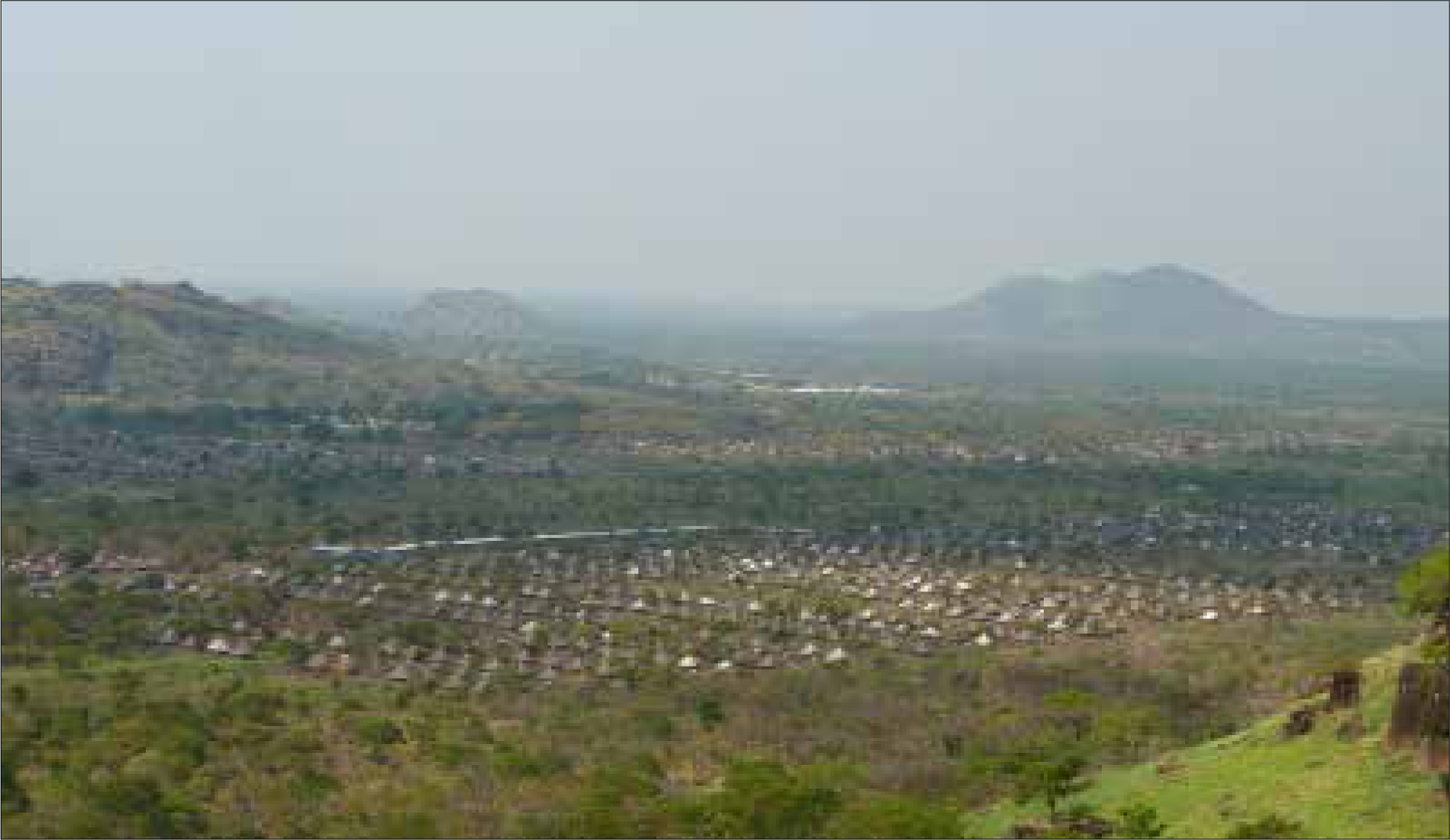I have long had an interest in working for an organisation like Médecins Sans Frontières (Doctors Without Borders) (MSF). As a child, I would devour my grandparents' copies of National Geographic magazine and as soon as I could travel, I sought out different lifestyles and cultures. When I left school, I went to university to do a degree in Development Studies, which was aimed at understanding the needs and means of supporting developing countries.
It was during my own pregnancies that I became inspired to pursue midwifery. I met some wonderful compassionate midwives and this, combined with my desire to work abroad, made working for MSF a huge ambition of mine. I had to wait until my children grew up and left home before I could commit to spending months abroad, but this meant that I had a good deal of experience, which has helped me in the field.
My most recent assignment was on the search and rescue ship, Aquarius, in the central Mediterranean. This is not a typical MSF assignment, but it has an intensity that is difficult to put into words. There were normally around 40 people on board, including MSF medics, a search and rescue crew, the ship's crew, and journalists. We all worked together to rescue people fleeing from Libya in dangerously overcrowded boats, and we cared for them during the journey to a place of safety.
Sometimes there were periods with no rescues, when the work largely involved preparing the boat and practising various rescue and emergency drills. Whenever we got the call that there was a boat in need of rescue, usually very early in the morning, we would grab our safety gear, helmets and life jackets and meet on the deck to prepare the space for rescued people.
The moment when people in these dinghies see their rescuers is very dangerous. These flimsy boats may already have taken on water, and any panic can result in people falling in and struggling in the water. The women and children are most at risk at this time, so it is always tense until everyone is on board. The relief of a safe rescue is then quickly overtaken by the demanding and rewarding work of looking after many very vulnerable people.
The role of a midwife on the boat is vast. I would look after all the rescued women and children, providing antenatal care for the pregnant women and psychological first aid for those who were survivors of sexual violence. Births were rare, but there were almost always pregnant women on board.
The morning after one difficult rescue, I was woken early and told that there was a woman in labour. Her two sons and husband were also on board. Fortunately, everything happened very quickly and smoothly, so there was no time to worry that we were in the middle of the Mediterranean with no recourse to extra help.
Baby Newman was born and before I knew it, a photograph of the mother, Faith, along with Newman, his big brother and me, was all over the press in many different countries. The attention of the media on the boat was sometimes difficult to work with, but we soon realised how important it was to get the story out to the world—after all, MSF was originally founded by both doctors and journalists.
Many MSF projects do not receive as much media attention. My previous assignments saw me dispatched to crises that rarely make headlines, for example in Ethiopia.
Kule refugee camp in Ethiopia is home to approximately 55 000 South Sudanese refugees, who have been fleeing their country since civil war re-erupted in 2013. The camp was well set-up, organised into sections A-G. The sections were differentiated by the presence of schools, churches, markets or food distribution points. Families there live in tukuls, thatched roof dwellings about four metres square. They have access to communal cooking fires and toilets.
While I was there, MSF ran small health posts in each section, with two nurses and one midwife stationed in each. From these health posts MSF could provide first aid, antenatal care and immunisations, which are especially important in refugee settings. MSF also ran a health centre for more serious or complicated conditions. There we had an adult ward, an outpatient department, a paediatric ward, a TB ward, a therapeutic feeding centre, a maternity ward and a pharmacy.
I helped run the maternity department, a unit with 10 postnatal beds, two delivery rooms and a waiting area for those in labour. I worked with 18 midwives and a supervisor, communicating in English with the help of six translators, who were also refugees living in the camps. These women were often very well educated and very keen to work, although under the regulations for refugees we could only pay them a small amount. Working with interpreters can be difficult, but midwifery has a language of its own and women often know what you are asking them by your tone of voice or through sign language. MSF was well respected, which made it easier to engage with patients, who knew you were there to help them.
Work life was fairly hectic. Despite being the manager, there was a lot of hands-on midwifery involved in this post. While the local staff caught the bus from town each day, I lived in the health centre with the other international staff, which meant being on call 24/7. Being called at night on the radio often meant that other staff were disturbed as we were living in tents, so usually the guard would whisper my name and scratch on the canvas of my tent to alert me to an emergency.
I remember being called one night because a baby had died and the mother was hysterical—this in itself was unusual because the women accepted most things with a remarkable stoicism. She was a young mother whose baby had weighed less than 1 kg. Together we managed to keep the baby alive for 19 days. She was a model mother and did everything we asked: skin-to-skin, kangaroo mother care, expressing breast milk and tube feeding. The marvellous nurses from the therapeutic feeding centre had managed to cannulate the baby for prophylactic antibiotics and the baby was beginning to put on weight.
Her reaction was of course completely understandable, but it was so unusual the stunned staff didn't know what to do. We gave her space and privacy to grieve and hold her baby. In some of the cultures I have encountered through my work with MSF, it is considered wrong for a woman to have anything to do with death, and women are not allowed to see or touch their stillborn babies or dead infants. In the UK, research emphasises the importance of processing death, but when faced with different cultural or traditional norms, it must be handled with great care.
In many places that I have worked, one of the major challenges is to get women to come and give birth in the maternity unit. There are all sorts of reasons that they do not want to. In this camp, we offered ‘Dignity Kits' for anyone who came in to give birth. A Dignity Kit consisted of bucket with a lid, which contained soap, pants, reusable sanitary towels, a comb, and a wrap for the baby. For people who had very little, these were essential items that greatly helped encourage women to come to the health centre for the birth of their babies. Of course, some women did not quite make it in time, and we would have to run from the unit with gloves and clothes to catch a baby born just outside the compound. ‘On the road babies', as we called them, were often very sandy but otherwise fine! We also issued birth certificates, meaning that the women could claim additional food, which further encouraged them to come to us.


This placement in Ethiopia was in strong contrast to my previous mission in south-eastern Chad, where the hospital was not as well accepted, and women tried to avoid coming in to the maternity ward. This meant that women often arrived at a late stage with complications. If the outcome was poor, it reinforced their lower opinion of us and affected our acceptance in the community. It takes a great deal of hard work to change this perception and encourage the population to seek medical care.

The moments I find most rewarding (of which there are many) are when we manage to get good outcomes for the marginal cases—the tiny twins, the malpresentations and the prolonged labours. Of course, job satisfaction also comes from being able to say fond farewells to healthy mothers and babies. The successful outcomes give you a tremendous feeling, especially knowing that, had you not been there, the outcome could have been quite different.
One amazing story that stands out in my memory is of a young woman who presented with an obstetric fistula caused by an obstructed labour, which rendered her incontinent and unable to walk. She had been carried by her husband and friends for four days to get to the camp. She was carried into the health centre and we started the process to get her referred to the capital for treatment at one of the best fistula hospitals in the world. The love and compassion shown by her family, and her calm resilience, was inspiring. I have every belief that she was treated well and returned to a good quality of life.
The most frustrating and challenging moments (of which there are have also been many) were when the treatment women needed was more complex than we had resources for. The care that MSF provides adheres to medical ethics of ‘do no harm’ and is often under a strict mandate. For example, when I worked in one project in Chad, we provided maternity care, but our resources could not extend to diagnosing or treating a cancer patient. A woman came to our ward thinking that she was 5 months pregnant, but the scan revealed a mass in her uterus. Care of such complexity is limited in most facilities that MSF supports in Chad, so all we could do was suggest that the woman make the long journey to the women's hospital in the capital. Witnessing such social injustice and inequality first hand is difficult.
That said, I believe our impact is truly valuable. It is extremely pleasing to watch shy members of the team blossom under good supervision, and then apply our messages and training on in their work, particularly when it concerns respectful care for women. I have tried to transfer the skills I used teaching an emergency obstetric course with the Liverpool School of Tropical Medicine into field settings, and respectful maternity care is an important component of the course.
Working away from family and friends is never easy, but I have met so many amazing people while working for MSF—international staff, local staff and patients—and I am filled with gratitude for all the experiences that I have had.
I am not finished yet! There will be more assignments, more unusual places, more challenges and more joy, because it is marvellous to be part of the MSF family.

